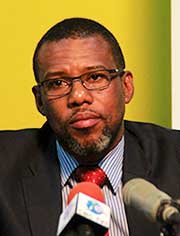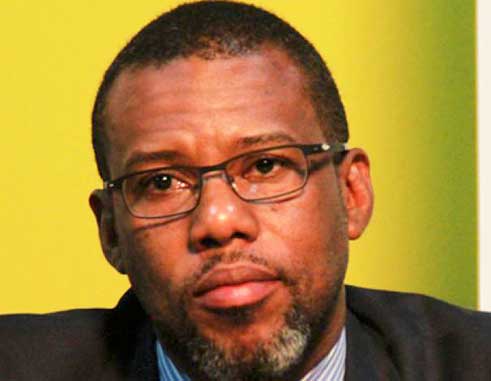
PRESS RELEASE – THE United Nations General Assembly has designated October 13 as the date to celebrate the International Day for Disaster Reduction (IDDR) to promote a global culture for disaster reduction, including its prevention and mitigation, as well as preparation activities.
The International Day for Disaster Reduction — #IDDR — is a day to recognise the efforts individuals and communities who have undertaken to reduce their risk to disasters and increasing the awareness of the importance of disaster risk reduction. It is also a day to urge all citizens and governments to be involved in efforts to establish communities and nations that are more resilient to disasters.
CDEMA remains committed to continue working to reinforce national and local systems in order to build resilience to disasters at the national and community levels. This approach is reflected in Priority areas 1 and 4 of the regional Comprehensive Disaster Management (CDM) Strategy 2014-2024, which focus on building institutional capacity and building community resilience, respectively.
The Regional CDM Strategy is the region’s vehicle for implementation of the Sendai Framework, which is the global agenda for Disaster Risk Reduction (DRR), as well as advancing Goals 11 and 13 of the Sustainable Development Goals (SDGs). CDEMA, therefore, supports and champions the need to accelerate efforts in managing disaster risk towards enhancing the region’s preparedness and response capabilities given the threat of climate change.
This year’s target for IDDR2017 is focused on prevention, protection and reducing the number of people affected by disasters. The campaign focuses on the primary importance of the family home as a sanctuary and safe refuge in times of disaster with a particular focus on preventing displacement.
“Home Safe Home” is the slogan for IDDR2017 following a year in which 24.2 million new displacements by disasters were recorded by the Internal Displacement Monitoring Centre (IDMC). For us in the Caribbean, the issue of displacement as a result of disasters is a reality and a matter that requires the region’s urgent attention. The recent impacts from Hurricanes Irma and Maria have highlighted the need to tackle the incidences of vulnerability, which remain a key issue for the Caribbean. In that regard, CDEMA is proposing a clear focus on safer housing standards and construction as well as an examination of national social protection policies, including social safety nets.
Another phenomenon generated out of the recent hurricane events is the need for non-impacted States to consider arrangements for receipt of displaced persons from affected States. These may or may not be CARICOM nationals and may be either transient or desiring to settle. The appropriate measures for the treatment of these persons will need full consideration within the context of CARICOM’s broader policy but also individual national government policies.
As an initial step in this direction, CDEMA will focus its assistance to displaced persons in Antigua and Barbuda and Dominica by focusing on the most vulnerable (single female-headed families, elderly and disabled) through the provision of voucher grants for grocery and hygiene supplies as well as providing a rent grant support for these persons. CDEMA will also contribute to the ‘build back better’ efforts for at least 40 families in Dominica.
We encourage regional governments to take the urgent steps in advancing national programmes by modernizing, legislating and enforcing building codes and standards as well as strengthening the policy and enabling environment. This is paramount, especially in tackling vulnerabilities and enhancing resilience at the national and local levels.














